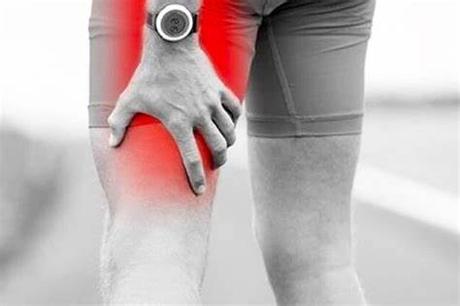Home
- Elham Farkoush
- September 30, 2023
- 10:00 am
- No Comments
If you are an active person who enjoys sports, exercise, or physical activities, you may have experienced injuries at some point in your life. Injuries can be frustrating, painful, and costly.
They can also limit your performance, health, and quality of life.
While some injuries are unavoidable, many can be prevented by following some simple strategies.
In this article, we will explore some of the common reasons why you keep getting injured and how to prevent them.

Common Reasons Why You Keep Getting Injured
Some of the common reasons why you keep getting injured are:
Inadequate warm-up and cool-down
Warming up and cooling down are essential parts of any physical activity.
They help prepare your body for the demands of the activity, increase your blood flow, heart rate, and body temperature, improve your range of motion, flexibility, and coordination, and reduce your risk of injury.
Warming up and cooling down also help prevent muscle soreness, stiffness, and inflammation, and promote recovery and healing. Skipping or rushing these steps can increase your chances of getting injured.
Poor nutrition and hydration
Nutrition and hydration are vital for your body’s function, repair, and growth. They also affect your performance, efficiency, and energy expenditure.
Consuming enough and the right kinds of nutrients, such as carbohydrates, protein, fat, vitamins, minerals, and water, can help your body cope with the stress of physical activity, recover faster, and prevent injury.
On the other hand, lacking or consuming too much of certain nutrients can impair your body’s function, cause symptoms, such as hunger, cravings, weakness, and mood swings, and increase your risk of injury.

Muscle imbalances
Muscle imbalances occur when some muscles are stronger or tighter than others, creating uneven stress on your joints and tendons.
Muscle imbalances can be caused by various factors, such as genetics, posture, habits, previous injuries, or specific activities.
Muscle imbalances can affect your alignment, stability, and mobility, and lead to injuries, such as tendinitis, sprains, strains, or fractures.
Overtraining
Overtraining is a condition that occurs when you train too hard, too often, or for too long, exceeding your body’s capacity to recover and adapt.
Overtraining can result from a poorly designed and/or executed training program, or external factors, such as stress, lack of sleep, or illness.
Overtraining can impair your performance, cause symptoms, such as fatigue, soreness, irritability, insomnia, decreased performance, and increased susceptibility to illness and injury, and lead to chronic or recurrent injuries, such as tendinopathy, bursitis, or plantar fasciitis.

Poor Mechanics
Poor mechanics refer to performing an activity with improper form, technique, or posture.
Poor mechanics can create unnecessary or excessive stress on your muscles, joints, and tendons, and reduce your efficiency, power, and accuracy.
Poor mechanics can be caused by various factors, such as lack of knowledge, skill, feedback, fatigue, or distraction.
Poor mechanics can lead to injuries, such as back, shoulder, or elbow pain, or rotator cuff tears.
Lack of rest and recovery
Rest and recovery are crucial for your body’s health and performance.
They allow your body to repair, rebuild, and adapt to the stress of physical activity, and prevent overuse injuries.
Rest and recovery include getting enough sleep, at least seven to nine hours per night, taking rest days, at least one or two per week, and varying your activities, to avoid overloading the same muscles, joints, and tendons.
Ignoring or neglecting rest and recovery can increase your risk of injury.
Previous injury
Previous injury is one of the strongest predictors of future injury.
Previous injury can leave residual weakness, stiffness, scar tissue, or pain in the affected area, affecting your function, performance, and recovery.
Previous injury can also cause psychological factors, such as fear, anxiety, or lack of confidence, that can affect your performance and recovery.
Previous injury can also make you more susceptible to re-injury or compensation injuries, where you overuse or strain other parts of your body to protect the injured area.
How to Prevent Injury
While some injuries are unavoidable, many can be prevented by following some simple strategies, such as:
Warm-up and cool down
Before and after your activity, perform some light exercises, such as jogging, cycling, or skipping, to increase your blood flow, heart rate, and body temperature. Then, do some dynamic stretches, such as lunges, leg swings, or arm circles, to improve your range of motion, flexibility, and coordination. After your activity, do some static stretches, such as hamstring, calf, or chest stretches, to relax your muscles, reduce tension, and prevent stiffness.
Hydrate and nourish
Drink plenty of fluids, such as water, sports drinks, or juice, before, during, and after your activity, to prevent dehydration, heat exhaustion, or heat stroke. Eat a balanced diet, rich in carbohydrates, protein, fat, vitamins, minerals, and water, to provide your body with the energy and nutrients it needs to function, repair, and grow. Avoid or limit alcohol, caffeine, sugar, and processed foods, as they can dehydrate you, impair your performance, and delay your recovery.
Strengthen and condition
Regularly perform exercises that target your major muscle groups, such as your chest, back, legs, and core, to improve your strength, endurance, and power. Also, include exercises that focus on your stabilizing muscles, such as your rotator cuff, gluteus medius, and transversus abdominis, to enhance your stability, balance, and posture. Additionally, incorporate exercises that challenge your proprioception, such as single-leg stands, wobble board, or Bosu ball, to improve your body awareness, agility, and reaction time.

Rest and recover
Allow yourself enough time to rest and recover between your activities, especially if they are intense, long, or frequent.
Aim for at least one or two rest days per week, and vary your activities to avoid overloading the same muscles, joints, and tendons.
Also, get enough sleep, at least seven to nine hours per night, to optimize your physical and mental health.
Improve your mechanics
Learn and practice the proper form, technique, and posture for your activity, and seek feedback from a coach, trainer, or physical therapist.
Avoid or correct faulty movement patterns, such as excessive pronation, knee valgus, or rounded shoulders, that can increase your risk of injury.
Use appropriate equipment, such as shoes, clothing, or gear, that fit you well, support you, and protect you.
Address your previous injuries
If you have a history of injury, consult with your doctor or physical therapist to determine the cause and severity of your injury, and whether you need any treatment or rehabilitation.
Follow the instructions and recommendations of your health care provider, and complete your recovery program before returning to your activity.
Also, address any psychological factors, such as fear, anxiety, or lack of confidence, that may affect your performance and recovery, and seek professional help if needed.
By following these strategies, you can reduce your chances of getting injured and enjoy your physical activities more.
However, if you do get injured, do not ignore or neglect your injury, and seek medical attention as soon as possible. Remember, prevention is always better than cure. Stay safe and have fun!
Physiotherapy in Richmond Hill
Physio2Health is ready to help you find top-notch why you get injured so easily.
At Physio2Health, we’re proudly bringing together physiotherapy practices in Richmond Hill to help people get the high-quality need. Want to see a physiotherapy in person?
Please make your online appointment or call us to appointment Physio2Health that can help you why you get injured so easily.
Not keen on in-person sessions?
No worries. We also offer effective and affordable virtual physiotherapy.
Contact our clinic today so we can help you find the most effective physical therapy services for your injury or condition.


